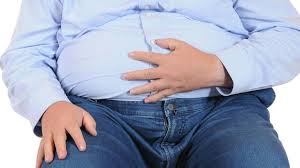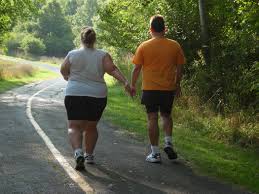Carbohydrates affects weight management

Carbohydrates affects weight management and weight loss motivation can only begin little by little
Carbohydrates affects weight management: Low carb diets for weight loss
Many studies have proven the effectiveness of diets with a lower carbohydrate intake for weight loss, according to a study published in 2008 in the “American Journal of Clinical Nutrition.” Obese men were assigned to either a very low carbohydrate intake, with 4 percent of the calories as carbohydrates, or a moderate carbohydrate diet, with about 35 percent of the calories as carbohydrates. Although participants were allowed to eat to satiety in both groups, the group with the lowest carb intake lost significantly more weight in four weeks, about 14 lbs. compared to 9.6 lbs. in the moderate-carb group. The researchers conducting this study found that diets with a very low carbohydrate intake and higher fat intake resulted in significantly less hunger, which facilitates the weight loss process hence the reason why carbohydrates affect weight management significantly.
In the short term, low-carbohydrate diets may cause you to lose weight because they restrict kilojoules or energy. The body begins to use body stores of glucose and glycogen (from the liver and muscles) to replace the carbohydrates it is not getting from food. Around 3 g of water is needed to release 1g of glycogen, so the rapid initial weight loss on a low-carbohydrate diet is mostly water, not body fat.
As carbohydrate stores are used up, the body begins to rely on other sources of fuel such as fat. This can lead to the development of ketones in the body, which can make the body acidic. This can lead to metabolic changes, which may be dangerous for some people, such as those with diabetes.
Some people may also experience problems with a low-carbohydrate diet, including:
- Nausea
- Dizziness
- Constipation
- Lethargy
- Dehydration
- Bad breath
- Loss of appetite.
A diet low in carbohydrates but high in saturated fat is a bit uncertain and the potential effect on human’s life is currently not known however some experts believe that it is a recipe for a heart attack. Because of the uncertainty, more research is needed to bring clarity to the safety of very low carbohydrate diets. Nevertheless, some of the possible long-term effects may include the following:
- Weight gain – when a normal diet is resumed, some muscle tissue is rebuilt, water is restored and weight quickly returns.
- High cholesterol, abdominal obesity and obesity-related disorders – diets that are high in protein and fats are associated with a number of conditions, including heart disease, diabetes and cancer. This can occur if the diet is very high in fat, particularly from high-fat meats such as salami, sausages and bacon.
- Kidney problems – can occur in people with impaired kidney function or diabetes.
- Osteoporosis and related conditions – are due to loss of calcium from the bones.
Carbohydrates affects weight management: Healthy approaches
A diet high in fruits and vegetables, whole grains, legumes and low-fat dairy products, and moderate in fat and kilojoules, is the best way to lose weight and keep it off. Vegetarians and people who consume predominantly plant-based diets are generally slimmer and have much lower rates of obesity, heart disease and cancer, compared to people who eat meat-based diets.
Ultimately, to avoid weight gain, energy intake should not be more than energy output over a period of time. Avoiding large portion sizes and limiting intake of saturated fats and added sugars will help keep energy intake in check. Regular exercise is also critical for long-term weight loss success. For more in-depth information about weight gain and weight loss doctor Dalal Akoury of AWAREmed Health and Wellness Resource Center will be very resourceful for you and your loved ones, you can schedule an appointment with her now for the commencement of your recovery process.
Carbohydrates affects weight management: Low carb diets for weight loss
http://www.integrativeaddictionconference.com/wp-admin



